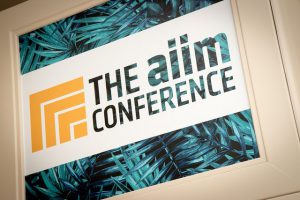[Originally published on the TeraThink blog]
 This week I attended the 2017 Alfresco Government Summit here in DC. It is part of Alfresco’s rotating 1-day summits that they hold around the world during the year. Alfresco held this year’s DC event at Nats Park, a great location for the great weather. When attendance is good, it is a solid event full of productive discussions about information governance.
This week I attended the 2017 Alfresco Government Summit here in DC. It is part of Alfresco’s rotating 1-day summits that they hold around the world during the year. Alfresco held this year’s DC event at Nats Park, a great location for the great weather. When attendance is good, it is a solid event full of productive discussions about information governance.
This year was a good year.
As a former Alfresco employee, it was enjoyable to chat with old friends to learn what has changed, and not changed, since my departure. More importantly for TeraThink, it was great to hear directly from Alfresco executives what their priorities are and their vision for tackling them. Enterprise content management (ECM) is constantly evolving so as a leading vendor in the space, their opinion matters.
Based upon what I saw at the event, Alfresco’s priority is enabling digital transformation for organizations.



